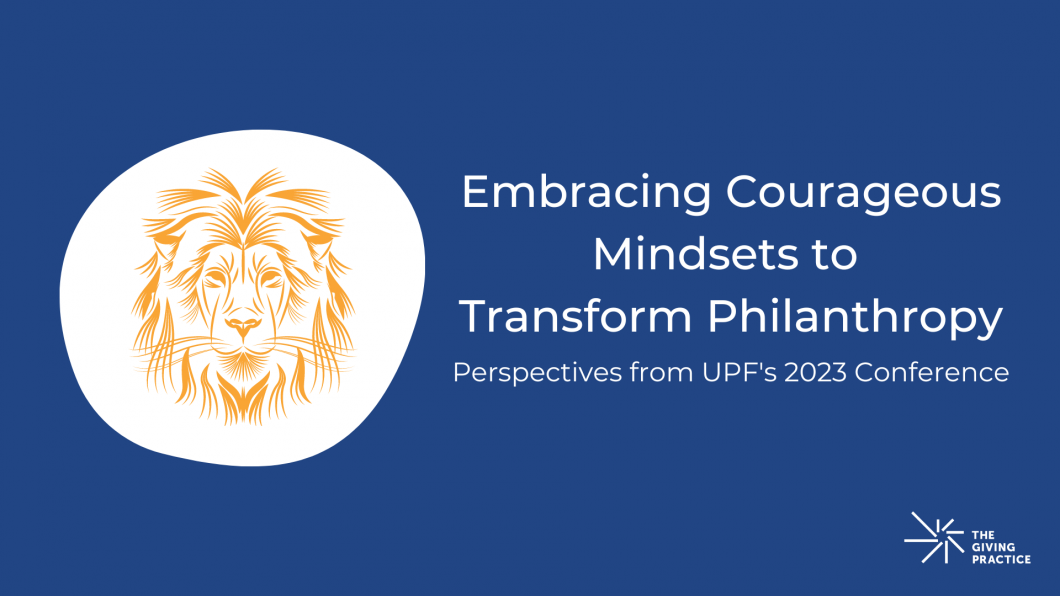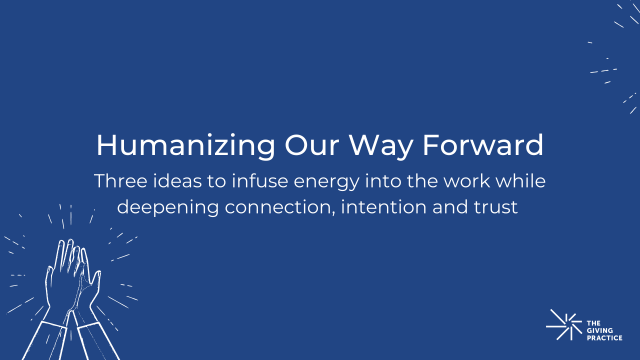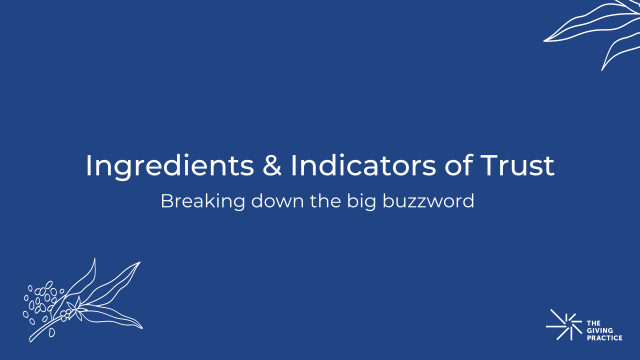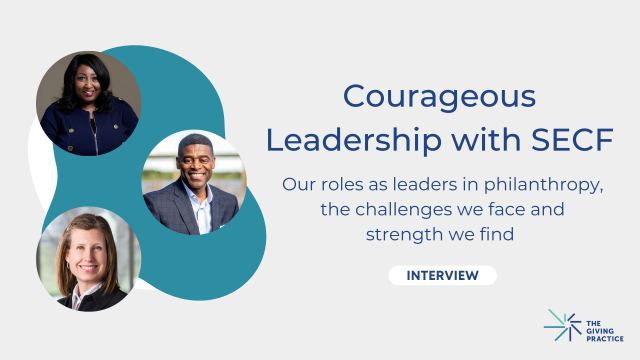
During the United Philanthropy Forum’s 2023 conference, keynote speaker F. Javier Torres-Campos, poignantly expressed to attendees that “philanthropy is born out of love but is implemented out of fear.” Overcoming this fear and moving towards justice takes courage, the key theme of the conference.
Below, we've captured five mindsets of courageous leadership that we observed from our colleagues throughout the week to help transform ourselves, our organizations and the philanthropic sector for equity and justice:
- Strive for better, not perfect
Perfectionism often gets in the way of working for a more equitable and inclusive sector. Fear of failure or saying the wrong thing can lead to silence or a lack of action. How many times have we spent months crafting the perfect DEI statement without doing the work of building relationships with community, shifting funding to BIPOC-led organizations or working toward greater inclusion within our own institutions? Across sessions, we heard that creating a more just sector requires practice. And when we see that change looks like progress and not perfection, we allow ourselves to take more action.
- Practice non-punitive accountability
As philanthropy was founded on and continues to work within oppressive dominant systems, there is a high level of intentionality required to remove harmful practices from our day-to-day work. And even with the highest of intentionality, we will make mistakes and cause harm so long as we’re working within this system. Therefore, accountability is imperative to our work. However, punitive accountability can be discouraging, squash opportunities for growth, and continue to center oppressors.
Conversely, non-punitive accountability as defined by Courage to Act is about responding to the needs of those who have been harmed in a way that elevates repair of the community over punishing the behavior. In a breakout session, we collectively reflected on ways we can work toward accountability that does not perpetuate harm or punishing behaviors. This included calling people in (versus out), asking difficult questions and creating spaces of openness and vulnerability.
- Think like an organizer/deep canvasser
Throughout the conference, we heard attendees share the challenges of doing this work in places where the words “diversity” and “equity” shut down many conversations. They reminded us of the importance of relationship-building in this work – having those courageous, vulnerable conversations, seeking common ground across differences and seeing humanity in everyone. And that one conversation is not enough – it is just the beginning.
This long-term, relationship-oriented approach has long existed in the organizing world by those who use deep canvassing to shift hearts and minds. Deep canvassing is about “giving people the space to share what they are feeling and experiencing, and not just tell them they’re wrong, but instead get to a shared place that is relatable and human,” Steve Deline of The New Conversation Initiative shared in a New York Times article.
An attendee reminded us that this work cannot be done at the expense of those who have experienced disproportionate harm from oppressive structures. During a breakout session, she called in her white peers to recognize and help lift the disproportionate burden by continuing to engage in difficult conversations, especially amongst white peers.
- Shift from reactive to proactive practices
During a plenary session on mobilizing philanthropy to act courageously, Edward Jones of ABFE shared with us how philanthropy is plagued by the “shiny penny syndrome.” Philanthropy loves to fund what is in the headlines. Similarly, philanthropy also engages in “rage funding” – funding in response to a specific issue, Supreme Court decision or headline that ignites our passion for social justice but quickly fades, along with the funding. In a breakout session, we heard from leaders that funding for reproductive justice has tapered off, and in many cases, never even made it to organizations led by communities of color. Taking a courageous mindset means moving beyond reactive funding practices; it requires listening and amplifying the needs of community and movement leaders. Underfunded and historically marginalized groups keep asking for bold and proactive practices like long-term flexible funding, well after the news cycle shifts its focus.
- Compost what isn’t working
On the final day, Rinku Sen from Narrative Initiative questioned philanthropy’s quest to democratize funds when philanthropy is inherently undemocratic. In our sector, we hold onto the current power structures and unhealthy systems because we fear change and letting go of power. Philanthropy holds onto this power through practices such as perpetuity instead of sunsetting or gatekeeping funds through arduous grantmaking policies rather than implementing trust-based philanthropy principles. To truly transform our sector, we must be courageous and let go of what is not working while simultaneously building innovative and bold systems.
Shifting our mindsets means stepping out of our fears and moving through courage to create transformative systems rooted in equity and justice. This is long-term work, but together we can use this courage to actualize a philanthropic sector that is rooted in and implemented out of love for our collective humanity.
Emily Daman is a Senior Analyst at The Giving Practice. You can learn more about Emily here.
Subscribe to our newsletter to stay up to date on our latest reflections, insights, interviews and more.



